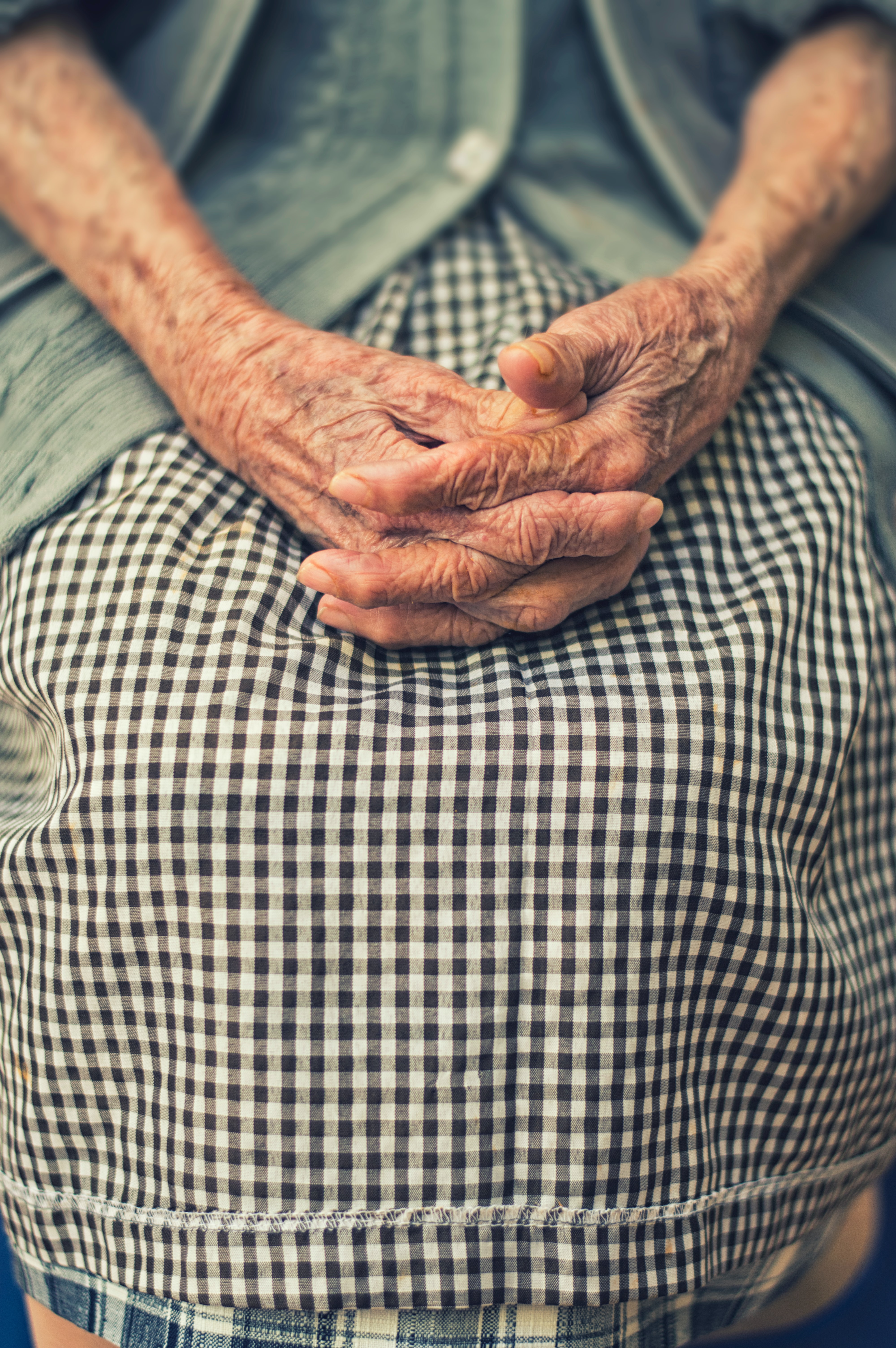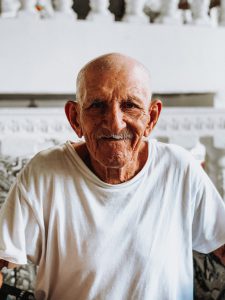Reaching The End Of Life

I’m not yet ready to go. I have too many things yet to do, to learn and to enjoy.
– an 84 year old woman living in hospice
Every life story has a beginning, middle and end.
Beginnings we celebrate, endings we more often fear. Even if we feel comfortable thinking and talking about dying; living at or near the final stages of life profoundly changes the way we think about many things. The meanings we attach to everyday life events and common objects may deepen. Who and what we most value may shift. Importantly, our everyday tasks may change; the ones we do or hope to do. This module is about living near the end of life, the process of dying, and the supports that can be used to enable this transition. Making sense of our life, managing discomfort, and engaging with those who matter all become important tasks during this final life transition.
Statistics Canada estimates that approximately 247,000 deaths occur nationwide each year. It is believed that every death could affect the well-being of five other people. This means that every year, death can potentially affect over 1.4 million Canadians. Knowing what to expect, and who to turn to for help, can ease our worries as we navigate this emotionally difficult – though potentially intensely spiritually meaningful – transition.
In Western countries like Canada, death remains a social taboo. Just thinking about it can be highly uncomfortable, not to mention having to cope with our eventual death or the passing of someone we love. For us, the end-of-life transition marks the completion of a lifetime filled with both personal and worldly history; the conclusion of diverse and treasured relationships; and the celebration of a unique life lived. The totality of our life’s experiences forms the backdrop of this transition into the great unknown. It is understandably a sensitive time for all involved, making it difficult to address the many challenges and needs that we have at this time. Yet we must maintain our sense of dignity and quality of life as we go through this last life journey. To die well and to live fully at the end of our life requires support, compassion, and knowledgeable guidance by our side.
When Does the End of Life Begin?
Each person’s end-of-life experience is unique. No one can predict what may happen at the end of life, how long this final stage will last, or when the exact moment of death will happen. The process is influenced by factors like the specific illness, medications being taken, and the person’s overall health.
We may feel we are near the end of our life if given a terminal illness diagnosis. However, many people die without a diagnosis of a terminal illness. Many people, especially those living with debilitating chronic illnesses, may feel that they are coming to the end of their life. For others, the death of a partner may initiate a shift in their perspective. Moving to a long-term care setting, for some, may also focus our thoughts on our mortality.
What Care Options are Available?

In an already stressful time, navigating the healthcare system can seem like an additional burden. We may encounter terms like ‘palliative care’ or ‘end-of-life care’ which may be alien to us.
Palliative care is treatment, care, and support for those living with a life-threatening or terminal illness. The goal of palliative care is to reduce suffering and improve the quality of life – to allow the dying person to be as comfortable and active as possible during the time they have left.
In medical settings, end-of-life care most often refers to treating those who are expected to pass very soon. Just like palliative care in general, end-of-life care focuses on pain management and dealing with heavy emotions; felt more intensely since the time is approaching. In other settings, end-of-life may also refer to a stage when people feel they are in the last phase of their life or nearing the end of their life, even for those not living with a terminal illness.
While death and planning for it may be difficult topics, it is in our best interests to engage with it sooner rather than later. Advanced care planning is when we talk about the possible scenarios with any chronic or terminal condition, health, and personal care. Our wishes about our health and personal care are then used to create a written plan. This is usually detailed in a formal will or a medical record. The plan will help care providers and family members feel more comfortable about making decisions on our behalf if we become unable to do so.
Read the 2019 Pan-Canadian Framework to learn more about Advance Care Planning.
Occupational Therapists Can Help Us Do What Matters at The End of Our Lives
“Next year, I will turn 90 years old. I never believed that I would live for so long. I no longer have the power I used to. Some days are terrible, and I don’t want to live anymore, but other days are okay.”
– Vlasis (story gathered by Andrew Hodes)
While we might feel that we are living near the end of our life, the services we receive may not consider how this perspective changes our sense of time, future goal setting, and the relative importance of everyday tasks. Service providers may not respond appropriately to our desire to talk about our death when we may be asking big questions about the meaning and purpose of our lives. As best selling author and physician Atal Gawande illustrated in his book, Being Mortal, the need to be free of pain; to feel connected and cared for, and to feel part of something bigger than ourselves may become paramount. There may be many end-of-life tasks that we feel the need to undertake.
- Healing broken relationships;
- Saying good-bye to loved ones;
- Making sense of our own lives through telling our life stories;
- Reconnecting with spiritual and religious practices;
- Coping with anxieties and the loss of hope;
- Leaving important legacies, stories, memories, and well wishes for family members, friends, or even long valued charities or causes.
While we might feel the need to undertake these tasks, our changing bodies and decreased energy levels may prevent us from engaging in them fully. This is where an occupational therapist can assist us.

Occupational therapists ask the question: “What is important to you as you enter this new phase of life, and how can we help you do the things you need to do to continue to be the person you want to be?”
More specifically, occupational therapists may help us to:
- Manage pain and remain physically comfortable;
- Optimise our sense of control over our remaining life choices;
- Maintain optimal levels of physical functioning through the use of special equipment, assistive technologies, or home modifications;
- Overcome obstacles to maintaining our valued social relationships;
- Manage our fears and anxieties;
- Connect us with other needed professional health services;
- Make sense out of our lives and find purpose in our remaining days;
- Support our efforts to reconcile with friends or family, and to say goodbye;
- Assist us to leave a legacy by sharing our life stories or special gifts.
To find an occupational therapist to support your end-of-life journey, ask your family doctor, another primary care provider, or try this online search tool.
If you can’t find an occupational therapist in your area, consider sending a message to your local care provider or talking to your MPP.

